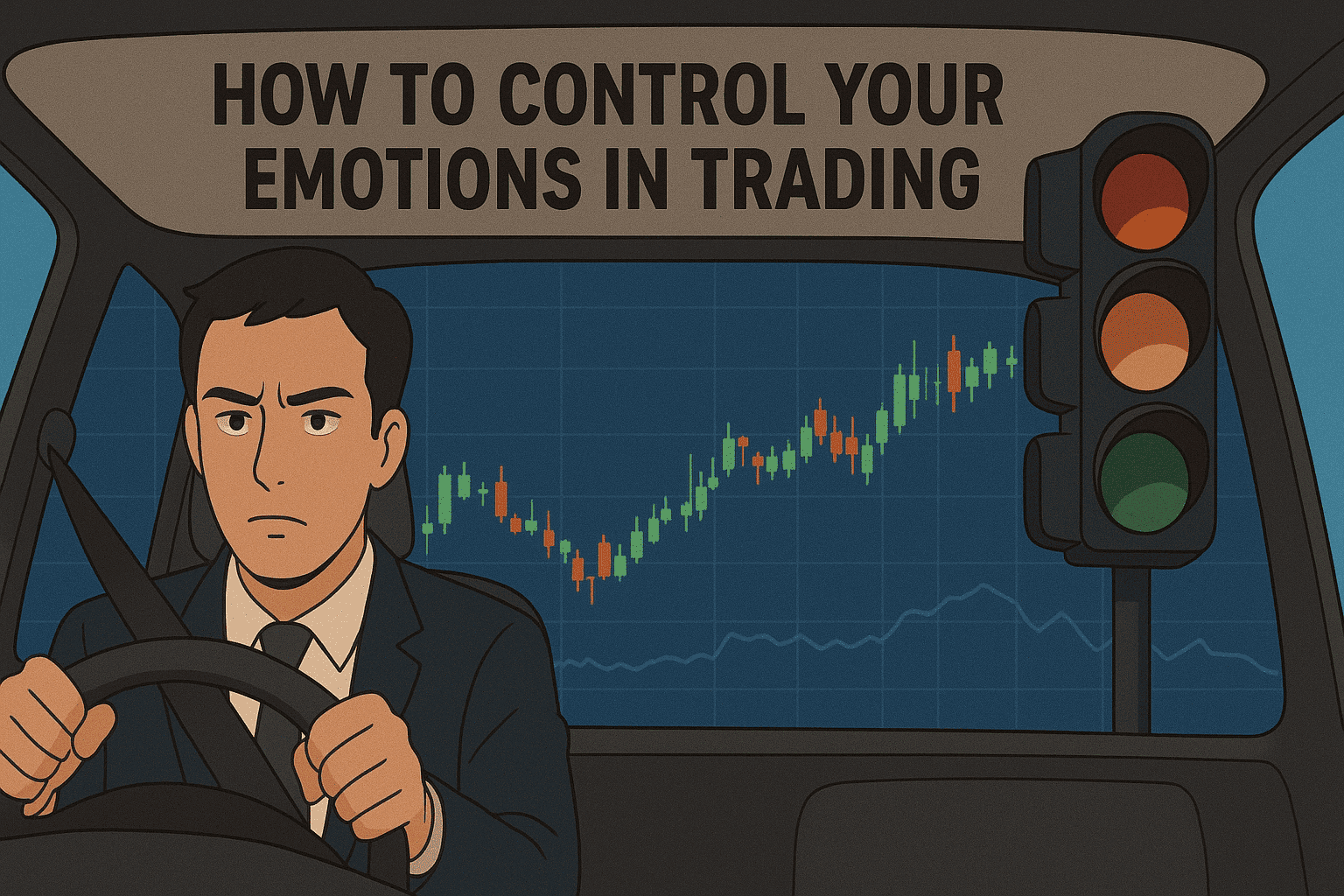5 Years in the Market, Best Backtested Strategy, Yet You’re Still Losing Money?
Let’s face it, you’re doing everything right. You’ve got the perfect strategy, you’ve spent hours analyzing charts, and your knowledge of the market is top-notch. So why are you still struggling to see those profits?
The real answer? It’s not your strategy. It’s not the market conditions. It’s your mind.
Trading psychology is the hidden factor that most traders overlook, and it’s the secret ingredient that separates the winners from the losers. It’s the key to mastering your emotions, controlling fear and greed, and sticking to your plan when the pressure is on.
So why is trading psychology so critical? Simple:
Trading success is won in the mind, not on the charts.
Your ability to stay calm under pressure, handle losses without panicking, and make clear-headed decisions in the heat of the moment can significantly impact your trading career.
In other words, even with the best strategy in the world, if your mind isn’t right, you’ll never truly unlock the potential of your trades.
Importance of Psychology in Trading
Trading psychology isn’t just theory; it’s the backbone of every profitable trader’s journey. The stock market is nothing but a mirror reflecting human emotions — fear, greed, hope, and panic.
In simple terms, trading psychology is the mental and emotional framework that guides your decisions under pressure.
- Fear: Closing winning trades too early “just to be safe.”
- Greed: Holding for “just a bit more” until profits disappear.
- FOMO: Jumping into a move because “everyone else is in.”
- Overconfidence: Doubling your position size after two good trades, and giving back all profits on the third.
Think about this: If emotions controlled pilots mid-flight, planes wouldn’t reach their destination. Trading works the same — control yourself first, then control your trades.
A strong psychology is what allows you to stick to rules and handle losses like a professional.
Learning and building trading psychology helps you to:
1. Build Discipline – The Backbone of Trading
Discipline Isn’t About Being Robotic – It’s About Sticking to Your Plan, Even When Temptation Strikes.
Consider a situation where you’ve set a risk limit of 1% per trade. You are feeling confident after a couple of wins, so you decide to double your lot size. One bad trade later, and suddenly, all that progress is wiped out.
The reason? You broke your own rules.
This is where strong trading psychology comes into play. Discipline isn’t just about following rules—it’s about resisting the urge to break them, no matter how tempting it might seem. It’s about making rational decisions, even when emotions like greed or fear try to take over.
Think of discipline as a filter — it separates the noise, the impulses, and the distractions from the quality trades. Without it, all the hard work and strategy you put in can quickly unravel.
2. Helps in Managing Risk – Your Safety Net
Risk management is another important parameter that you must consider while trading in the market.
To understand how successful traders use it, let’s consider a situation where a trader bought Bank NIFTY calls, but post-event, the Implied Volatility (IV) dropped, and the trade moved against him. Instead of doubling down or averaging down, he cut his losses, exited the trade, and preserved his capital.
The key here? Your mindset. It’s easy to get attached to a losing position, but true traders know when to walk away.
Here, the real trader is the one who defines the risk. Set your stop-loss before you even enter the trade. When it hits, don’t dwell on it. Walk away and don’t get caught in revenge trades.
Think of it like wearing a helmet. You don’t wait until after an accident to put it on; you wear it beforehand to stay safe and protect yourself from what might come.
3. Reduce Stress and Help You Focus
If you are someone who easily gets affected by the market’s mood, then trading psychology is a must for you.
You need to understand that the market can be a rollercoaster, but your mind doesn’t have to be. Traders with strong psychology know how to stay calm, even when the markets get wild.
Here is a simple tip for you to build your psychology: reduce your screentime and set an alert for key levels. Wait for the opportunity, instead of creating or chasing it.
By doing this, you’ll avoid mental burnout and only react when there’s a real opportunity. You’ll be in a better mindset to make decisions when it counts.
It’s like checking your phone battery every 5 seconds. It’s exhausting, and honestly, it’s unnecessary. Let the alert ring when it truly matters.
4. Builds Consistency
Consistency isn’t about winning every trade; it’s about showing up with the same focus and rules every single day, no matter what.
Keep a trading journal where you log the why behind each trade, your emotions, and the outcome.
Over time, you’ll start to spot patterns—like “I overtrade after my first loss” or “I make poor trades post-lunch.” This data helps you identify and break bad habits.
Your journal is like your CCTV footage, it gives you the unfiltered truth about where you’re going wrong. The clearer you are with your data, the quicker you’ll improve.
How to Master Trading Psychology?
Building mental strength is a gradual process — like training for a marathon. Here are simple trading psychology strategy that helps you gain success in your journey:
- Write a plan: Note your entry, exit, and risk before the market opens.
- Practice mindfulness: Take 5 deep breaths before every trade to avoid impulsive clicks.
- Set realistic goals: Focus on process and discipline, not jackpot trades.
- Learn from mentors: Watching experienced traders stay calm during volatility teaches you more than theory ever can.
If you are serious about your trading career and want to build a strong psychology to improve your performance in the market, then join the stock market mentorship program.
Here, you will get the experience of personalized learning from an experienced and profitable mentor.
Final Thoughts
Trading psychology is your edge — not an afterthought. When you learn to manage fear, greed, and FOMO, trading becomes less stressful and more consistent.
Start small — create a plan, track your emotions, and review your trades weekly. Over time, this mental discipline will become your biggest strength.
Before investing capital, invest your time in learning Stock Market.
Fill in the basic details below and a callback will be arranged for more information:




